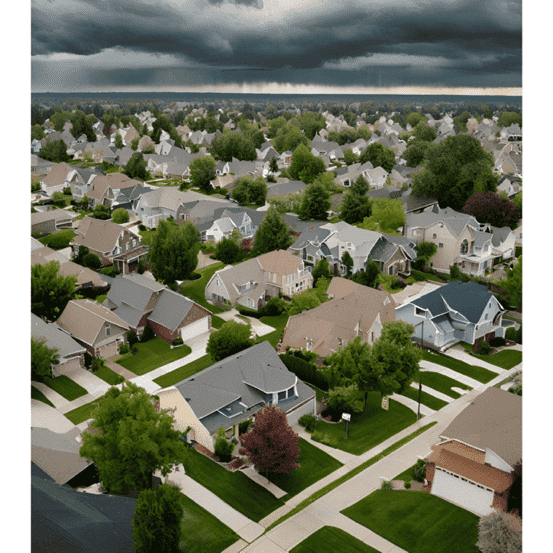Home Ownership in Germany: A Slightly Affordable Shift
Home ownership for German families is now 40% of income, down from 45%. Explore the factors behind this trend in a rental-skewed market.
Home ownership for German families has experienced a modest uptick in affordability; however, the overarching landscape remains predominantly tilted towards rental accommodations. According to a recent report disseminated by the German Economic Institute in Cologne, the average German family is now required to allocate approximately 40% of its income towards purchasing a home, a slight improvement from the staggering 45% recorded in 2022. This amelioration can be attributed to a confluence of declining interest rates and an uptick in wages.
Nevertheless, this marginal relief starkly contrasts with the conditions observed merely five years prior, when an average family of four could secure a mortgage by expending less than 30% of its net household income. While rental prices have consistently escalated, they currently represent a more palatable 33% of income, as per the study's parameters, which consider a four-person household comprising one full-time and one part-time wage earner.
The prevailing trends suggest that the persistently low home ownership rate in Germany—wherein less than half of the populace possesses their own domicile—are unlikely to undergo significant transformation. In fact, housing expenses have burgeoned as a proportion of overall household expenditures, a trajectory that is poised to continue ascending due to persistently low construction rates.
Although prospective further reductions in interest rates by the European Central Bank may enhance individuals' capacity to acquire property, the report posits that affordability is improbable to revert to the favorable levels witnessed in previous decades. Compounding this issue is a notable decline in new construction, with Deutsche Bank economists projecting that a mere 260,000 housing units will be finalized in 2024, starkly below the estimated 370,000 new apartments required annually to alleviate Germany's housing crisis meaningfully.
To catalyze a shift in this stagnation, the market necessitates a robust political impetus to invigorate new construction endeavors. Without such intervention, the dream of home ownership may remain an elusive aspiration for many German families, relegated to the realm of distant possibility rather than attainable reality.
Home Ownership in Germany: A Slightly Affordable Shift
Greece: Europe’s Fourth Cheapest Real Estate Market
Greece: Europe’s Fourth Cheapest Real Estate Market
Explore why Greece stands out as one of Europe’s most economical real estate markets, attracting savvy investors seeking value and opportunity.

Surge in Scottish Home Sales: UK Real Estate Update
Surge in Scottish Home Sales: UK Real Estate Update
Scottish home sales and enquiries surged in October, with a third of surveyors reporting the fastest growth in years, signaling a vibrant market.

Spain: A Leading Market in European Real Estate
Spain: A Leading Market in European Real Estate
Explore how Spain is becoming one of Europe's most promising real estate markets, excelling in retail, logistics, and hotel sectors for strategic growth.

Greece Real Estate Market: Rise of Serviced Apartments
Greece Real Estate Market: Rise of Serviced Apartments
Explore the growing demand for serviced apartments in central Athens, where integrated hospitality services attract savvy investors in the Greece real estate market.

Home Prices Hit by Climate Change, J.P. Morgan Warns
Home Prices Hit by Climate Change, J.P. Morgan Warns
J.P. Morgan analysts reveal a negative link between climate risk and home price appreciation. Explore the emerging trends and their impact.


